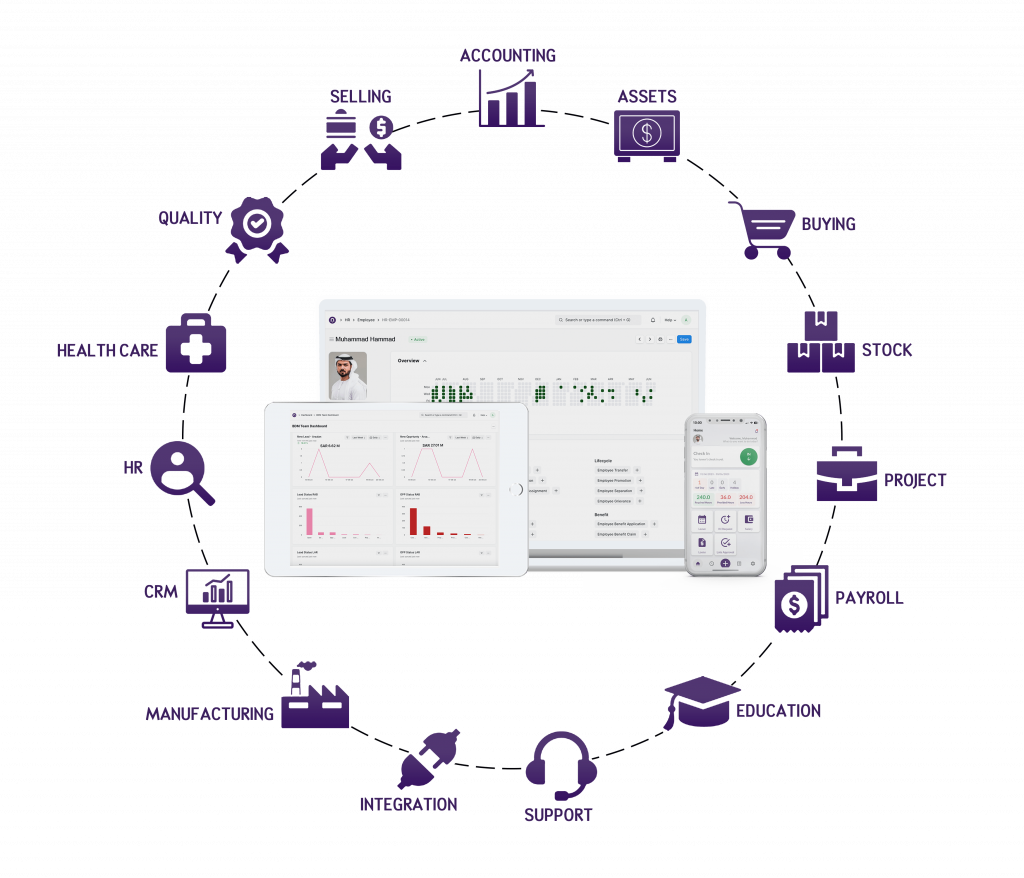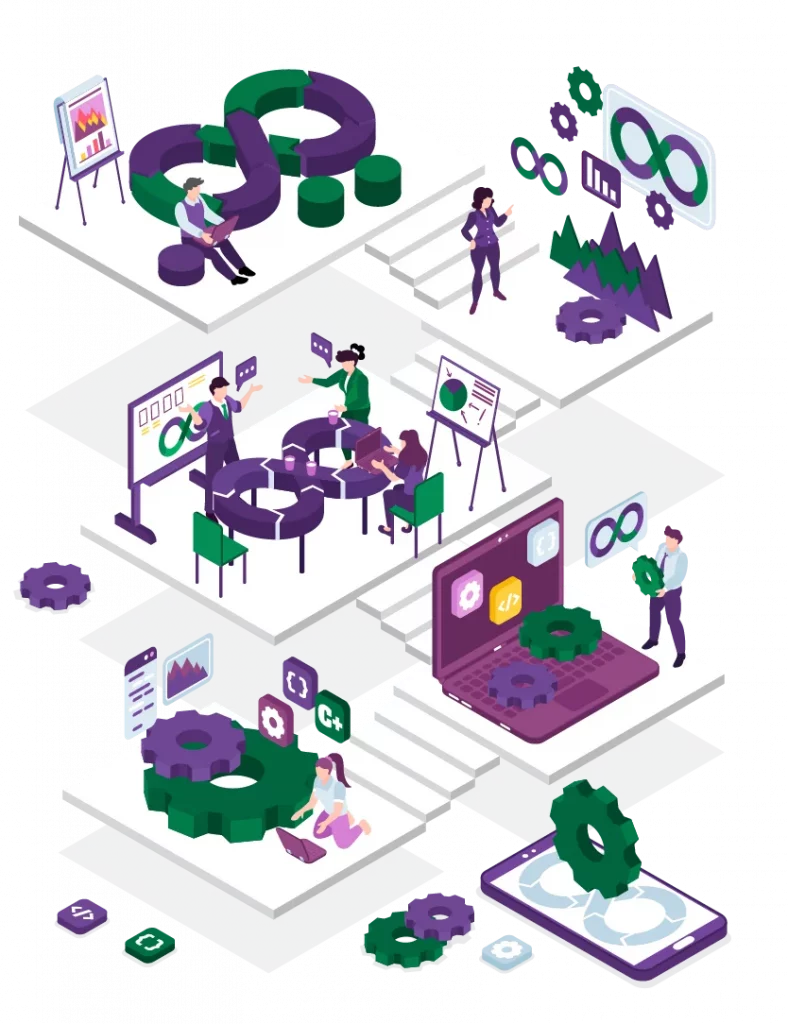What is ERP system?
An ERP system is a broad and integrated platform that can be hosted either on-premises or in the cloud. It’s engineered to oversee every aspect of a business, irrespective of whether it’s centered around production or distribution.
These ERP systems cater to a multitude of functions like financial management, human resources, supply chain management, and manufacturing, in addition to core accounting tasks. They are instrumental in efficiently handling day-to-day business operations such as accounting, finance, procurement, project management, and more.
When it comes to top ERP software in UAE, these systems are increasingly gaining traction. They are transforming the way businesses operate in the region, also enhancing efficiency and productivity. With ERP in UAE, businesses can streamline their operations, making them more agile and adaptive in today’s dynamic business environment.

Features of an ERP system
ERP systems come with a multitude of features that help streamline and manage various aspects of a business. Here are some key ERP features:
- ERP systems offer comprehensive tools for managing all financial aspects of a business, including accounts payable and receivable, general ledger, budgeting, and asset management
- ERP solutions often include modules for managing employee data, payroll, benefits, recruitment, training, and performance evaluations.
- These systems also help manage the flow of goods, data, and finances related to a product or service from the procurement of raw materials to the delivery of the product at its final destination.
- Many ERP systems include a CRM component to track customer interactions, sales pipeline, and marketing efforts.
- ERP systems can provide tools to plan, resource, and monitor the progress of projects.
- Features related to inventory management help businesses keep track of stock levels and product demand to optimize inventory and prevent overstock or stock outs.
- This involves automating purchasing processes, managing supplier relationships, and controlling costs.
- ERP systems often include sophisticated reporting features and analytics to help businesses make data-driven decisions.
- ERP systems can also integrate with other business systems like e-commerce platforms, POS systems, or third-party applications, providing seamless data flow between different business processes.
- ERP systems often have robust security features in place to protect sensitive business data.
ERP Vs CRM system

ERP (Enterprise Resource Planning) and CRM (Customer Relationship Management) are two powerful types of business software, each playing a unique role within an organization. However, their focus areas differ significantly.
ERP software primarily aims to streamline internal operations. It efficiently manages resources and facilitates data-driven decision-making across all departments. ERP integrates diverse functions such as finance, human resources, supply chain management, and inventory control into one unified platform. This integration promotes seamless data flow and collaboration among these departments, enhancing efficiency. Cloud based ERP software in UAE is transforming how businesses operate, offering enhanced productivity and adaptability.
On the other hand, CRM software focuses on managing a company’s interactions with its customers. It plays a crucial role in building and maintaining customer relationships, tracking sales and marketing activities, and delivering superior customer service. By collecting and analyzing customer data, CRM offers valuable insights into customer behavior and preferences, which businesses can leverage to boost customer satisfaction and loyalty.
The main difference lies in their orientation. ERP systems are inward-facing, designed to improve internal business processes, while CRM systems are outward-facing, focusing on enhancing customer relationships. Despite the differences, both systems are essential for business operations and often work together to provide a comprehensive view of a business’s operations and customer interactions.
In summary, while ERP systems manage the entire business cycle, CRM systems help businesses cultivate and manage their relationship with customers. Both systems, including the top best ERP software in UAE, serve as invaluable tools that augment the overall profitability of a business by increasing efficiency and improving customer relationships.
Benefits of ERP systems
Improved Efficiency: ERP systems eliminate repetitive processes and greatly reduce the need to manually enter information. This leads to efficiency improvements within the organization.
Enhanced Collaboration: By providing a centralized database, ERP systems boost interdepartmental collaboration. All data is consolidated and accessible to all relevant departments, also promoting better teamwork and decision-making.
Increased Data Security: ERP systems provide high-level data security. They have built-in protections against data breaches and offer advanced user-permission settings to prevent unauthorized access.
Better Analytics: With an ERP system, businesses can access their data in real-time with advanced analytics and reporting tools. This allows for more strategic decision-making based on up-to-date and accurate information.
Cost Savings: Over time, ERP systems can lead to significant cost savings. They allow for better resource management, eliminate data errors and redundancies, and increase operational efficiency – all of which save money.

Scalability: ERP systems are scalable, meaning they can easily be adjusted to meet changing business needs. As your business grows, the ERP system can adapt to accommodate new users, processes, or products
Improved Customer Service: With streamlined processes and accessible data, customer service improves. Sales and customer service teams can interact more efficiently with customers, leading to increased customer satisfaction.
Regulatory Compliance: ERP systems can help with regulatory compliance by providing templates and tools to track and manage regulations. This is particularly beneficial for businesses in highly regulated industries.
Contact us for a free review of your needs
